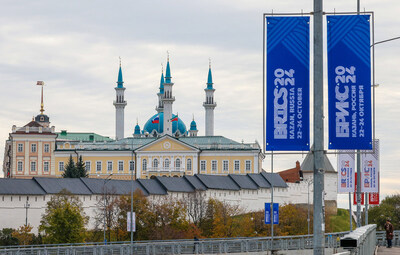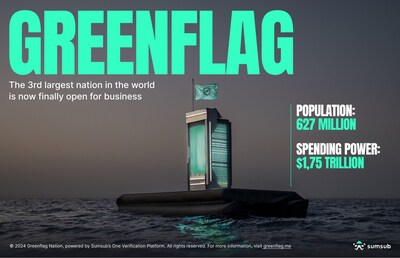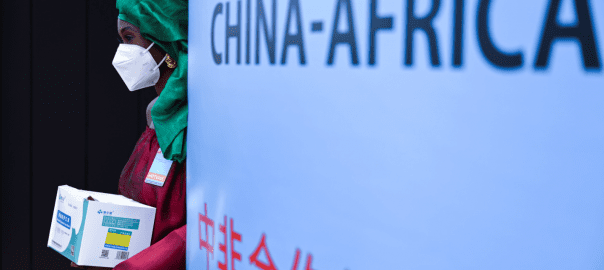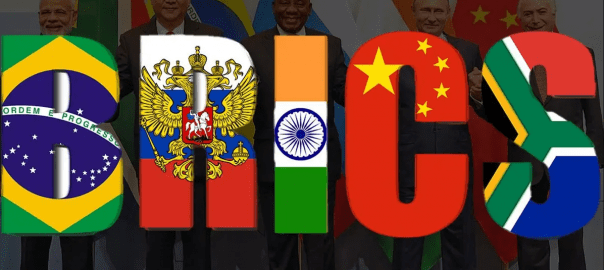At the ongoing BRICS Summit in Kazan, Russia, the leaders of BRICS member states are focusing on strengthening strategic partnerships and enhancing the grouping’s role in international affairs. Continue reading
Category Archives: Economy
European Shoppers Pull Back on Spending, Even as Inflationary Pressures Ease
Consumers across Europe are feeling the squeeze, with 73% reporting higher prices for goods and services in the first half of the year. At the same time, wages and savings haven’t kept pace: 25% of surveyed respondents said their income dropped in the first half of 2024, and 28% said they didn’t save as much. Continue reading
Global Businesses Lose $1.75 Trillion from Untapped Economic Potential of ‘Third Largest Nation’
Today, on World Inclusion Day, global full-cycle verification platform Sumsub reveals that a staggering 627 million individuals globally, larger than the population of the United States and Brazil combined, are excluded from essential digital services, including financial services, education, healthcare, and employment platforms. Continue reading
US Interest Rate Cut: Potential Ripple Effects on the London Property Rental Market – Insights from Walter Soriano London Management
Following the recent 0.5 percentage point reduction in the US Federal Reserve’s interest rate, global financial markets are reacting. While the move primarily affects American borrowers and savers, its effects are expected to ripple into the UK, particularly within London’s property market. Walter Soriano London Management (WSLM) examines the potential impacts on property landlords and investors in London’s rental sector. Continue reading
‘It is crucial to tell the real China-Africa story’
The 2024 Summit of the Forum on China-Africa Cooperation (FOCAC) is being held in Beijing from September 4 to 6. It takes place at a critical juncture when the world is grappling with various regional and global crises and there is a pressing need for countries from the Global South to join hands. How will this year’s FOCAC elevate ties between China and Africa? Continue reading
ELFBAR actions against counterfeits in South Africa
Global leading vape brand ELFBAR reinforces its firm stance against counterfeits, with some 3,600 fake and substandard vapes seized in the latest operation with enforcement authorities in South Africa.
How is BRICS (Brazil, Russia,India,China,South Africa) bloc doing so far?
June 4, 2024 /Economy/ — The BRICS bloc has been in the news recently due to a significant development: it doubled its membership in January 2024. Argentina, Egypt, Ethiopia, Iran, Saudi Arabia, and the United Arab Emirates were all invited to join Atlantic Council. This expansion has the potential to reshape the bloc’s influence, but it also comes with challenges. Continue reading
THE FUTURE OF GLOBAL TRADE IS BEING REGIONALISED, RESTRUCTURED, AND REROUTED, DMCC REPORT FINDS
AFTER FOUR YEARS OF WILD SWINGS FROM SHORTAGES TO GLUT, GLOBAL SUPPLY CHAINS ARE NOW IN THE GOLDILOCKS ZONE: GEP GLOBAL SUPPLY CHAIN VOLATILITY INDEX
The GEP Global Supply Chain Volatility Index — a leading indicator tracking demand conditions, shortages, transportation costs, inventories and backlogs based on a monthly survey of 27,000 businesses — rose in April to -0.18, from -0.32 in March, which signals that global supply chains are operating at close to full capacity. Continue reading
The Ghana Used Clothing Dealers Association research shows that waste within the Ghanaian second hand clothes trade dramatically lower than claimed
New academic research released today from the West African country of Ghana shows that waste in the second hand clothes sector (SHC) is dramatically lower than has been previously claimed. Continue reading










